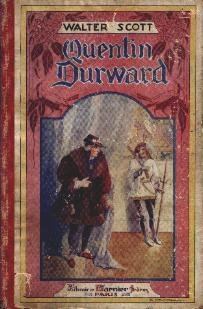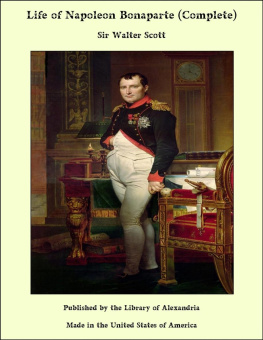Walter Scott - The Pirate
Here you can read online Walter Scott - The Pirate full text of the book (entire story) in english for free. Download pdf and epub, get meaning, cover and reviews about this ebook. genre: Adventure. Description of the work, (preface) as well as reviews are available. Best literature library LitArk.com created for fans of good reading and offers a wide selection of genres:
Romance novel
Science fiction
Adventure
Detective
Science
History
Home and family
Prose
Art
Politics
Computer
Non-fiction
Religion
Business
Children
Humor
Choose a favorite category and find really read worthwhile books. Enjoy immersion in the world of imagination, feel the emotions of the characters or learn something new for yourself, make an fascinating discovery.

- Book:The Pirate
- Author:
- Genre:
- Rating:3 / 5
- Favourites:Add to favourites
- Your mark:
- 60
- 1
- 2
- 3
- 4
- 5
The Pirate: summary, description and annotation
We offer to read an annotation, description, summary or preface (depends on what the author of the book "The Pirate" wrote himself). If you haven't found the necessary information about the book — write in the comments, we will try to find it.
The Pirate — read online for free the complete book (whole text) full work
Below is the text of the book, divided by pages. System saving the place of the last page read, allows you to conveniently read the book "The Pirate" online for free, without having to search again every time where you left off. Put a bookmark, and you can go to the page where you finished reading at any time.
Font size:
Interval:
Bookmark:
THE PIRATE.
by Sir Walter Scott, Bart.

Nothing in him But doth suffer a sea-change.
EDITORS INTRODUCTION
TO
THE PIRATE.

The circumstances in which The Pirate was composed have for the Editor a peculiar interest. He has many times scribbled at the old bureau in Chiefswood whereon Sir Walter worked at his novel, and sat in summer weather beneath the great tree on the lawn where Erskine used to read the fresh chapters to Lockhart and his wife, while the burn murmured by from the Rhymers Glen. So little altered is the cottage of Chiefswood by the addition of a gabled wing in the same red stone as the older portion, so charmed a quiet has the place, in the shelter of Eildon Hill, that there one can readily beget the golden time again, and think oneself back into the day when Mustard and Spice, running down the shady glen, might herald the coming of the Sheriff himself. Happy hours and gone: like that summer of 1821, whereof Lockhart speaks with an emotion the more touching because it is so rare,
the first of several seasons, which will ever dwell on my memory as the happiest of my life. We were near enough Abbotsford to partake as often as we liked of its brilliant society; yet could do so without being exposed to the worry and exhaustion of spirit which the daily reception of new visitors entailed upon all the society except Sir Walter himself. But, in truth, even he was not always proof against the annoyances connected with such a style of open-house-keeping. Even his temper sank sometimes under the solemn applause of learned dulness, the vapid raptures of painted and periwigged dowagers the horse-leech avidity with which underbred foreigners urged their questions, and the pompous simpers of condescending magnates. When sore beset in this way, he would every now and then discover that he had some very particular business to attend to on an outlying part of his estate, and, craving the indulgence of his guests overnight, appear at the cabin in the glen before its inhabitants were astir in the morning. The clatter of Sibyl Greys hoofs, the yelping of Mustard and Spice, and his own joyous shout of reveille under our window, were the signal that he had burst his bonds, and meant for that day to take his ease in his inn.... After breakfast he would take possession of a dressing-room upstairs, and write a chapter of The Pirate; and then, having made up and dispatched his parcel for Mr. Ballantyne, away to join Purdie where the foresters were at work....
The constant and eager delight with which Erskine watched the progress of the tale has left a deep impression on my memory: and indeed I heard so many of its chapters first read from the MS. by him, that I can never open the book now without thinking I hear his voice. Sir Walter used to give him at breakfast the pages he had written that morning, and very commonly, while he was again at work in his study, Erskine would walk over to Chiefswood, that he might have the pleasure of reading them aloud to my wife and me under our favourite tree.[1]
The tree is living yet! This long quotation from a book but too little read in general may be excused for its interest, as bearing on the composition of The Pirate, in the early autumn of 1821. In The Pirate Scott fell back on his recollections of the Orcades, as seen by him in a tour with the Commissioners of Light Houses, in August 1814, immediately after the publication of Waverley. They were accompanied by Mr. Stevenson, the celebrated engineer, a most gentlemanlike and modest man, and well known by his scientific skill.[2] It is understood that Mr. Stevenson also kept a diary, and that it is to be published by the care of his distinguished grandson, Mr. Robert Louis Stevenson, author of Kidnapped, The Master of Ballantrae, and other novels in which Scott would have recognised a not alien genius.
Sir Walters Diary, read in company with The Pirate, offers a most curious study of his art in composition. It may be said that he scarcely noted a natural feature, a monument, a custom, a superstition, or a legend in Zetland and Orkney which he did not weave into the magic web of his romance. In the Diary all those matters appear as very ordinary; in The Pirate they are transfigured in the light of fancy. History gives Scott the career of Gow and his betrothal to an island lady: observation gives him a few headlands, Picts houses, ruined towers, and old stone monuments, and his characters gather about these, in rhythmic array, like the dancers in the sword-dance. We may conceive that Cleveland, like Gow, was originally meant to die, and that Minna, like Margaret in the ballad of Clerk Saunders, was to recover her troth from the hand of her dead lover. But, if Scott intended this, he was good-natured, and relented.
Taking the incidents in the Diary in company with the novel, we find, in the very first page of The Pirate, mention of the roost, or rost, of Sumburgh, the running current of tidal water, which he hated so, because it made him so sea-sick. All the landsmen sicker than sick, and our Viceroy, Stevenson, qualmish. It is proposed to have a light on Sumburgh Head. Fitful Head is higher, but is to the west, from which quarter few vessels come. As for Sumburgh Head, Scott climbed it, rolled down a rock from the summit, and found it a fine situation to compose an ode to the Genius of Sumburgh Head, or an Elegy upon a Cormorantor to have written or spoken madness of any kind in prose or poetry. But I gave vent to my excited feelings in a more simple way, and, sitting gently down on the steep green slope which led to the beach, I een slid down a few hundred feet, and found the exercise quite an adequate vent to my enthusiasm.
Sir Walter was certainly not what he found Mrs. Hemans, too poetical.
In the first chapter, his Giffords, Scotts (of Scotstarvet, the Fifeshire house, not of the Border clan), and Mouats are the very gentry who entertained him on his tour. His plantie cruives, in the novel, had been noted in the Diary (Lockhart, iv. 193). Pate Stewart, the oppressive Earl, is chronicled at length in the Diary. His huge tower remains wild and desolateits chambers filled with sand, and its rifted walls and dismantled battlements giving unrestrained access to the roaring sea-blast. So Scott wrote in his last review for the Quarterly, a criticism of Pitcairns Scotch Criminal Trials (1831). The Trows, or Drows, the fairy dwarfs he studied on the spot, and connects the name with Dwerg, though Trolls seem rather to be their spiritual and linguistic ancestors. The affair of the clergyman who was taken for a Pecht, or Pict, actually occurred during the tour, and Mr. Stevenson, who had met the poor Pecht before, was able to clear his character.[3] In the same place the Kraken is mentioned: he had been visible for nearly a fortnight, but no sailor dared go near him.
He lay in the offing a fortnight or more,
But the devil a Zetlander put from the shore.
If your Grace thinks Im writing the thing that is not,
You may ask at a namesake of ours, Mr. Scott,
Sir Walter wrote to the Duke of Buccleugh. He paid a visit to an old lady, who, like Norna, and olus in the Odyssey, kept the winds in a bag, and could sell a fair breeze. She was a miserable figure, upwards of ninety, she told me, and dried up like a mummy. A sort of clay-coloured cloak, folded over her head, corresponded in colour to her corpse-like complexion. Fine light-blue eyes, and nose and chin that almost met, and a ghastly expression of cunning gave her quite the effect of Hecate. She told us she remembered
Font size:
Interval:
Bookmark:
Similar books «The Pirate»
Look at similar books to The Pirate. We have selected literature similar in name and meaning in the hope of providing readers with more options to find new, interesting, not yet read works.
Discussion, reviews of the book The Pirate and just readers' own opinions. Leave your comments, write what you think about the work, its meaning or the main characters. Specify what exactly you liked and what you didn't like, and why you think so.




